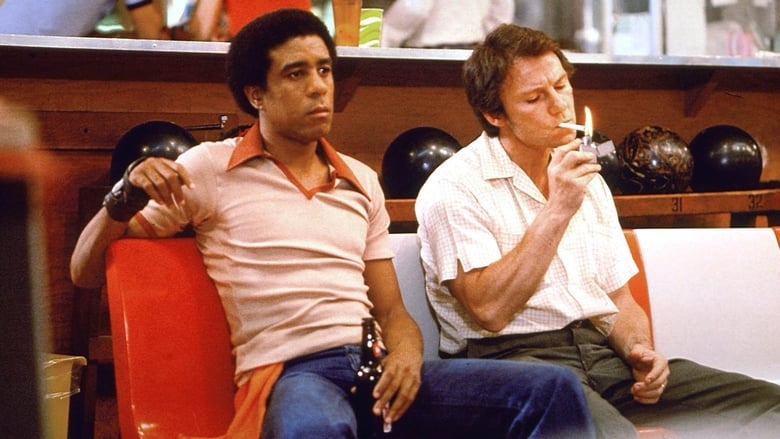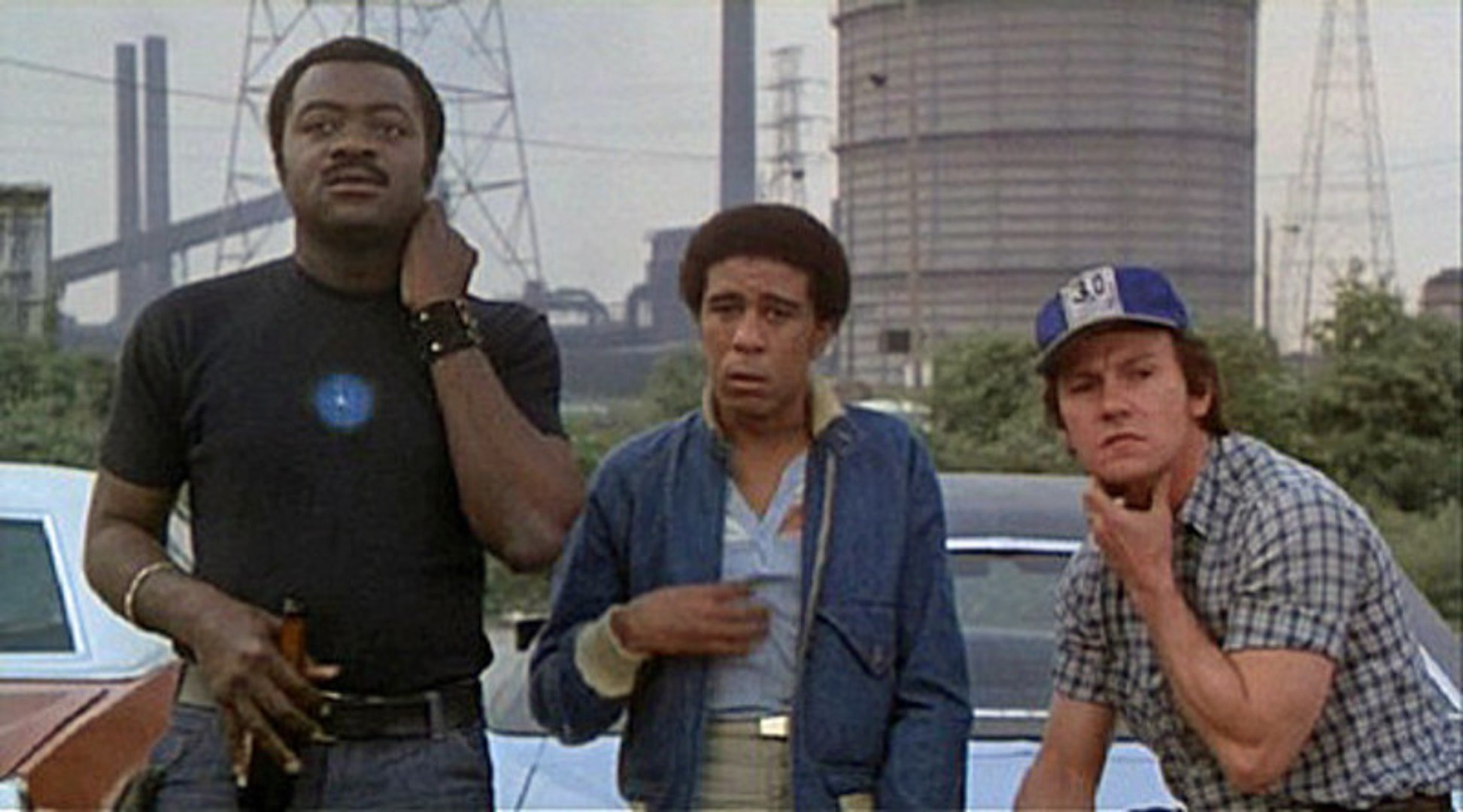← Back to Reviews

in
Blue Collar
Before Silkwood and Norma Rae, Paul Schrader made an impressive debut as director and screenwriter with 1978's Blue Collar, a gritty and uncompromising drama that like the above referenced films, questions the validity and integrity of unions and what they are allegedly doing or not doing to protect employees.

The setting is an automotive plant in Detroit where three employees and close knit friends have grown disgusted with the mistreatment and neglect they are getting from their union and decide to get revenge by breaking into the union safe. There's not much money in the safe but they do find a ledger with incriminating information about the union. They decide to use this ledger to blackmail the union, a fatalistic decision that not only blows up in their faces but destroys their friendship as well in a multitude of ways.

Schrader has a proven record as a screenwriter (Taxi Driver, Raging Bull, Affliction) and the genesis of this talent can be found in this expertly crafted story of friendship and corruption that manages to establish the central relationship between the three lead characters, document their personal motivations for committing their crime, and show how the union appears to have their backs at the beginning of the story but eventually becomes all about self-preservation.

As a director, Schrader shows an uncanny skill for using varied tools in displaying the effects of the story not only to the characters, but to the atmospheres they inhabit. There is a scene near the beginning of the film where we witness the workers at the local watering hole blowing off steam. There's a scene at the beginning of the final act in the same bar where the atmosphere is completely different...the place is practically empty and there's a viable tension in the air that is a creation of Schrader through his direction. He also manages to look inside these people and show how what's happening is affecting them...the scene where the three guys decide that they should stop hanging out together is a pivotal scene that charges emotions and changes the whole direction of the story.

Schrader also managed to put together the perfect cast to bring his story to fruition. Richard Pryor, Harvey Keitel, and Yaphet Kotto deliver powerhouse performances as the trio at the center of the story, with a particularly strong performance from Pryor, who is allowed to display some seriously dramatic acting chops here. Some other familiar faces pop up along the way, including Ed Begley Jr, Cliff DeYoung, Milton Seltzer, and Tracey Walter, but more than anything, this film is a testament to the talent of master storyteller Paul Schrader.
Before Silkwood and Norma Rae, Paul Schrader made an impressive debut as director and screenwriter with 1978's Blue Collar, a gritty and uncompromising drama that like the above referenced films, questions the validity and integrity of unions and what they are allegedly doing or not doing to protect employees.

The setting is an automotive plant in Detroit where three employees and close knit friends have grown disgusted with the mistreatment and neglect they are getting from their union and decide to get revenge by breaking into the union safe. There's not much money in the safe but they do find a ledger with incriminating information about the union. They decide to use this ledger to blackmail the union, a fatalistic decision that not only blows up in their faces but destroys their friendship as well in a multitude of ways.
Schrader has a proven record as a screenwriter (Taxi Driver, Raging Bull, Affliction) and the genesis of this talent can be found in this expertly crafted story of friendship and corruption that manages to establish the central relationship between the three lead characters, document their personal motivations for committing their crime, and show how the union appears to have their backs at the beginning of the story but eventually becomes all about self-preservation.

As a director, Schrader shows an uncanny skill for using varied tools in displaying the effects of the story not only to the characters, but to the atmospheres they inhabit. There is a scene near the beginning of the film where we witness the workers at the local watering hole blowing off steam. There's a scene at the beginning of the final act in the same bar where the atmosphere is completely different...the place is practically empty and there's a viable tension in the air that is a creation of Schrader through his direction. He also manages to look inside these people and show how what's happening is affecting them...the scene where the three guys decide that they should stop hanging out together is a pivotal scene that charges emotions and changes the whole direction of the story.

Schrader also managed to put together the perfect cast to bring his story to fruition. Richard Pryor, Harvey Keitel, and Yaphet Kotto deliver powerhouse performances as the trio at the center of the story, with a particularly strong performance from Pryor, who is allowed to display some seriously dramatic acting chops here. Some other familiar faces pop up along the way, including Ed Begley Jr, Cliff DeYoung, Milton Seltzer, and Tracey Walter, but more than anything, this film is a testament to the talent of master storyteller Paul Schrader.
